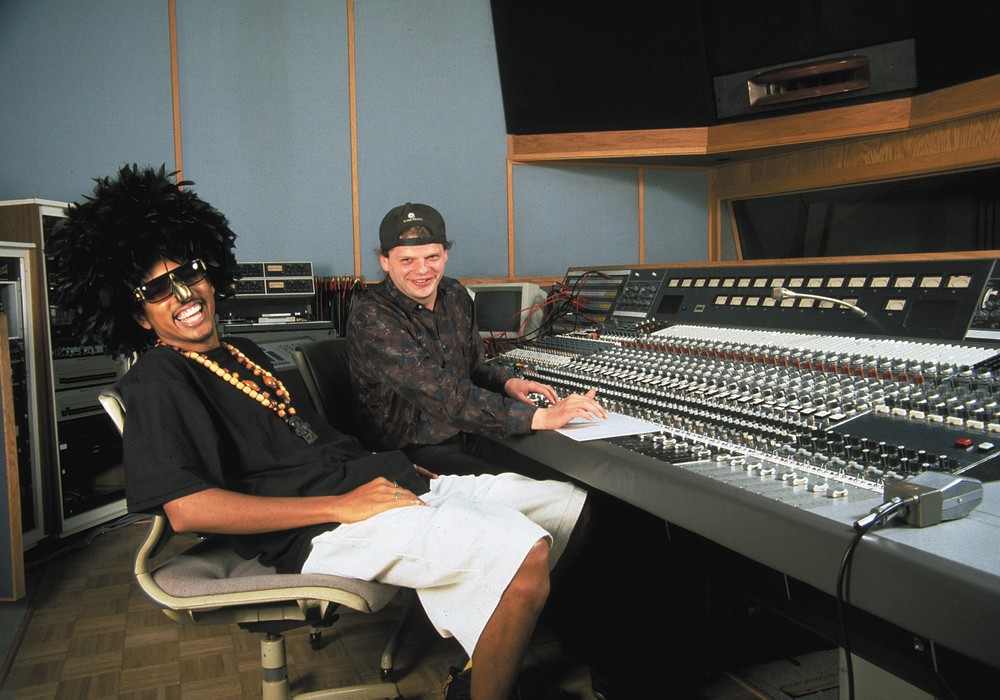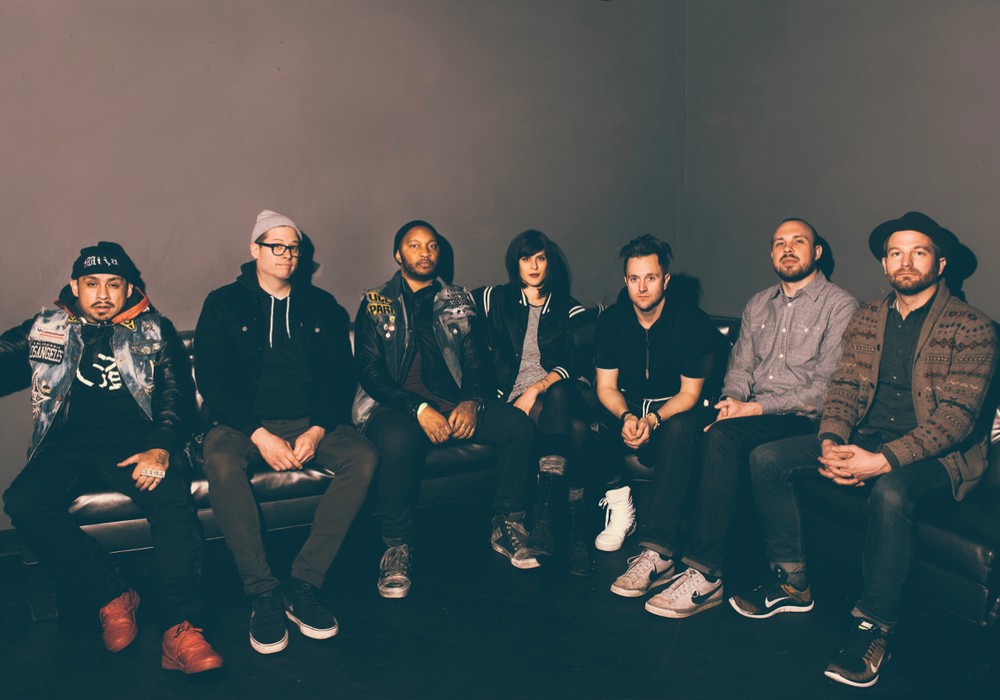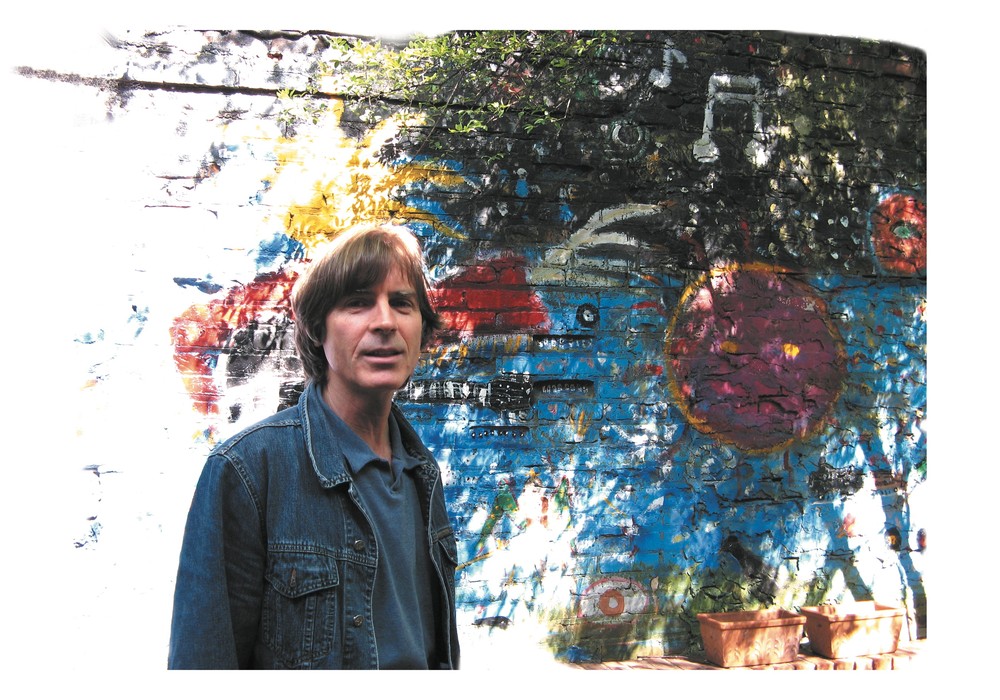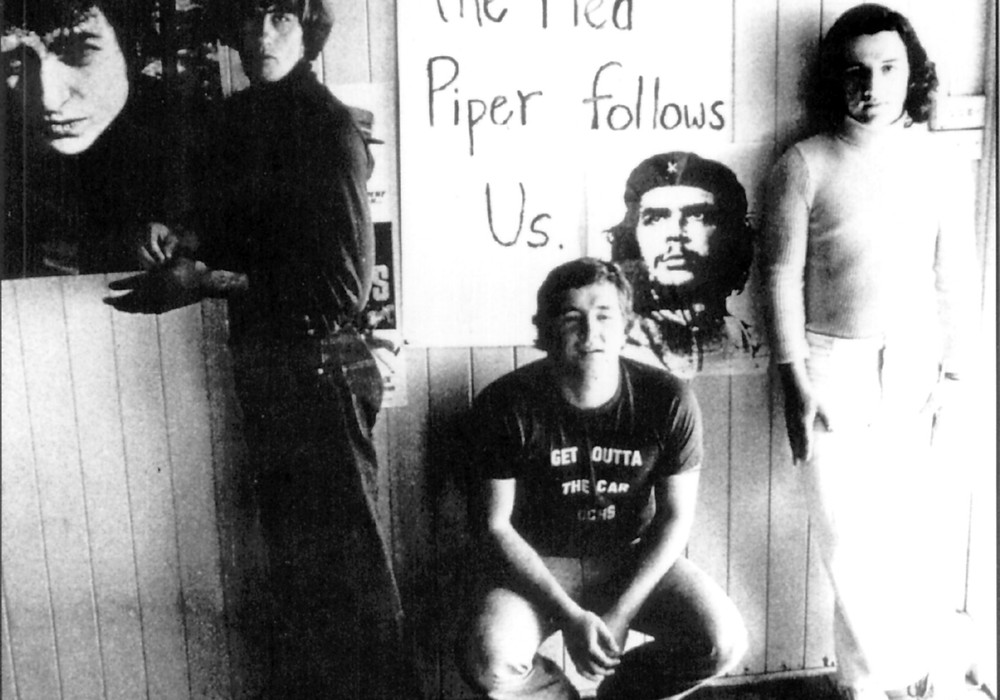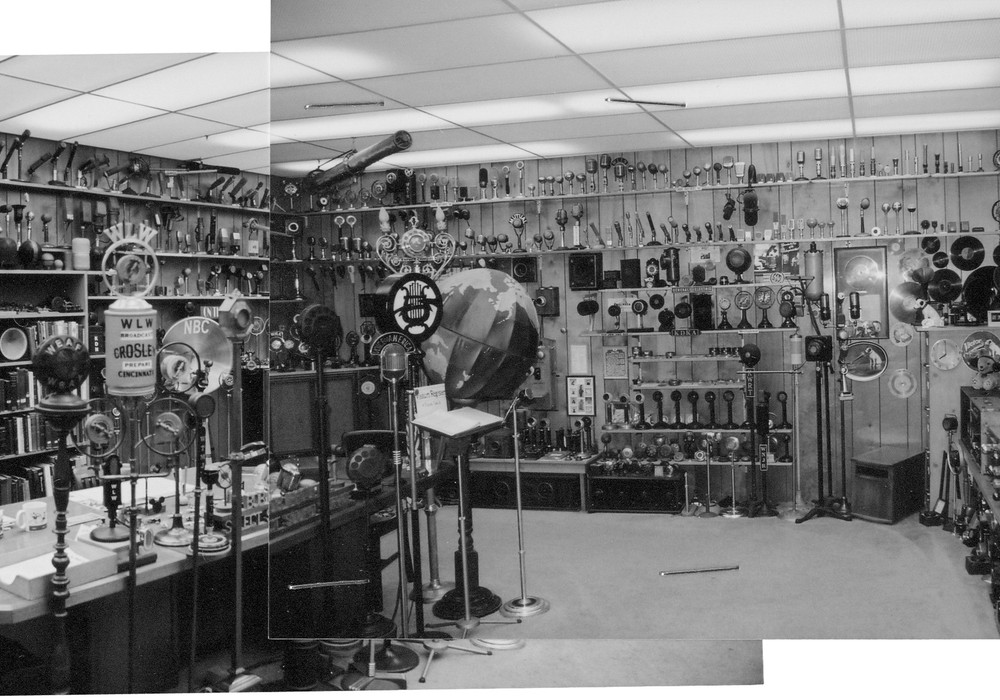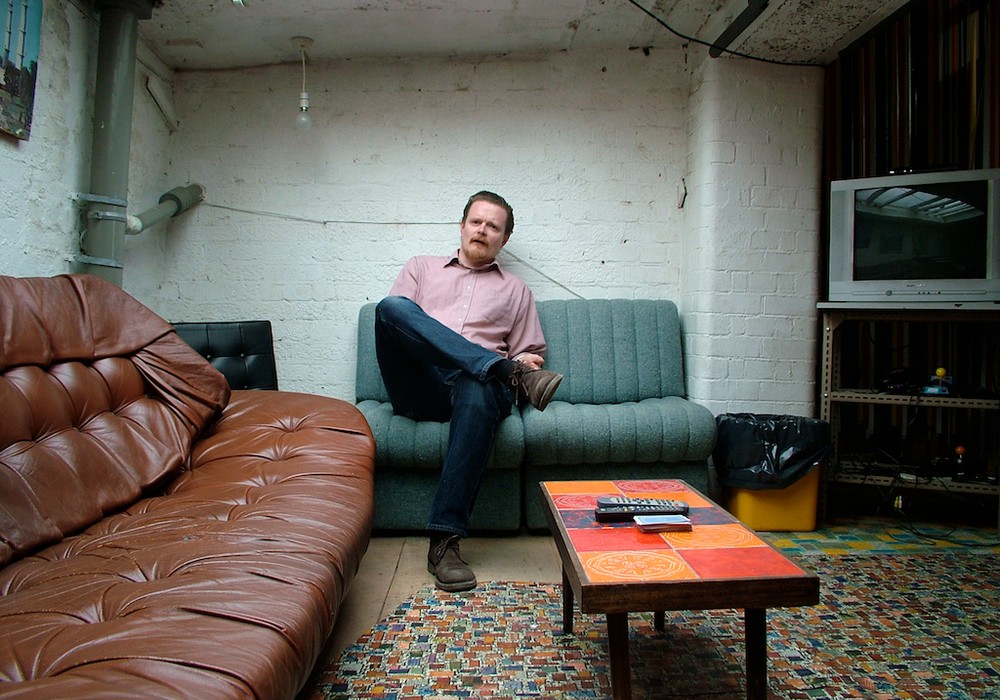It made sense that in the summer of 1999, the 10th anniversary show of the current line-up of The Ex took place in Amsterdam and included Shellac as well as a host of great experimental Dutch bands and performers. Shellac's Steve Albini [Tape Op #87] has been a loyal fan of The Ex for years. Why? Because The Ex have developed their sound so meticulously over the years, through rigorous touring and recording and maintaining their steadfast politic, that it is hard to liken The Ex to any other band ever.
The Ex solder political poetry to searing guitars, driving bass and mesmerizing, tribal drums. Since 1979, they have changed members and adapted their sound over and over again, but somehow the band has steered a rock-solid-punk political course supporting freethinking and social critique. They have always toured with and supported dissident underground, punk, and avant-garde musicians, as well as with politically outspoken bands and artists over the years, to name a few: Dog Faced Hermans, God is my Co Pilot, Tom Cora, Thurston Moore, Lee Ranaldo, Ab Baars, most recently with Chicago post-rockers Tortoise. The Ex have toured in Europe and in the US regularly, and have released countless numbers of recordings. The Ex's popularity in the USA led to an offer from independent label Touch & Go in Chicago, to record with Steve Albini for 1998 releaseStarters Alternators. The Ex's live shows — visceral sonic attacks of part-improv-part-scored music, to the ecstatic energy proportions of Zorn's Painkillers — lead one to wonder, how on earth does such a band approach recording?
I had the chance recently to sit down for an interview with Andy Moor, one of The Ex's two guitarists. Originally from the UK, Andy was the guitarist in Dog Faced Hermans and joined The Ex in the early '90s. He became a full-time member in '95 (when Dog Faced Hermans unfortunately split up). Andy's highly-creative style of playing guitar uniquely combines avant-garde techniques with punk rock. By adding pieces of metal to contort his old Fender guitar (a la Fred Frith), and by using unusual tunings and volume control, Andy avoids using affects pedals or other devices to achieve wide ranges of incredible guitar sounds (a la Steve Albini). On a typical sunny/rainy February day in Amsterdam, I biked over to meet with Andy. We spoke for two hours, surrounded by tea pots, a wilily rigged archaic 4-track, an old stereo, piles of cassettes and CDs and Andy's two guitars.
How do you guys create The Ex's sound and music and how is your music is recorded?
The energy thing of how we make the songs, what happens live and what happens in the practice room are really two quite different things. I mean, we don't jump up and down a lot in the practice room at all. We talk quite a lot, we play things over, we try to create a frame or a structure that later on will allow us to jump up and down. We don't try to make it too imprisoning so that when we play you can't breathe. We leave the possibility that once we start playing it's going to get looser and people are going to be able to breathe and play. The first gigs are a bit weird or stiff and slowly you find the right way to play it. Very quickly after one gig you know, "Oh this bit works or this bit doesn't work." You can't really tell this in the practice room, because you're sitting down and you can hear everything so everything sounds allright. When you get to a gig, you hardly ever hear... we can't hear each other, there are sounds from the audience, I can't hear Terrie, or... it's a completely different state you are in. You adjust the music that's been created in the practice room to the gig conditions, which are completely different. The sound is different. So the music changes. That's nice that we really react to the sound. When I go to the States, I have to use a different amp, and it's completely different, I mean there bits that sound the same, but then there are whole sections that I have to adjust to, because the whole reason I had decided to play those parts was because of a sound that was coming out of the amp, and suddenly that sound is not there — it's not there from Terrie, it's not there from Luc, and you get a bit disorientated and it takes a few gigs to get adjusted and you never ever feel it's as good. I think we're going to try to bring our own stuff over, because every time we tour in the States we suffer from that.
How does that translate into recording your music? Is recording more like playing live or playing in the practice space?
It's another third space that I am usually unsatisfied with, because it is neither live nor like the practice room. What happens is we play the songs for quite a while live before we go into the studio — the only time that The Ex ever recorded straight after being in the studio was Dead Fish and they recorded that live directly onto DAT. John Langford just set the mics up, they spent a whole day and then he recorded it directly. But I didn't think that was the best sounding Ex record, partly because the songs hadn't been played in a bit and you could hear that, they got much better later, those songs. The sound was a bit over- reverbed — the live room they did it in in this great studio in England [KGM Studios, in Wakefield]. It has a great live room but it's a bit reverby and when you record the whole band live in it, you can hear... I don't know if you've heard that record, but I think that's the result of a band going straight from the practice room to the studio rather than taking their music out on tour first. Because then all these really fine playing things, you don't even realize you are doing it, the more you play together the more the sound moves — and you do it by talking about it by thinking about it and you don't even realize you are doing it it just happens, and it's to do with wanting it to work. It's nice because usually when you try out something live most times everyone agrees on what works and what doesn't, most times everyone feels it immediately. We also get a reaction from the audience, which we take quite seriously. Even if...
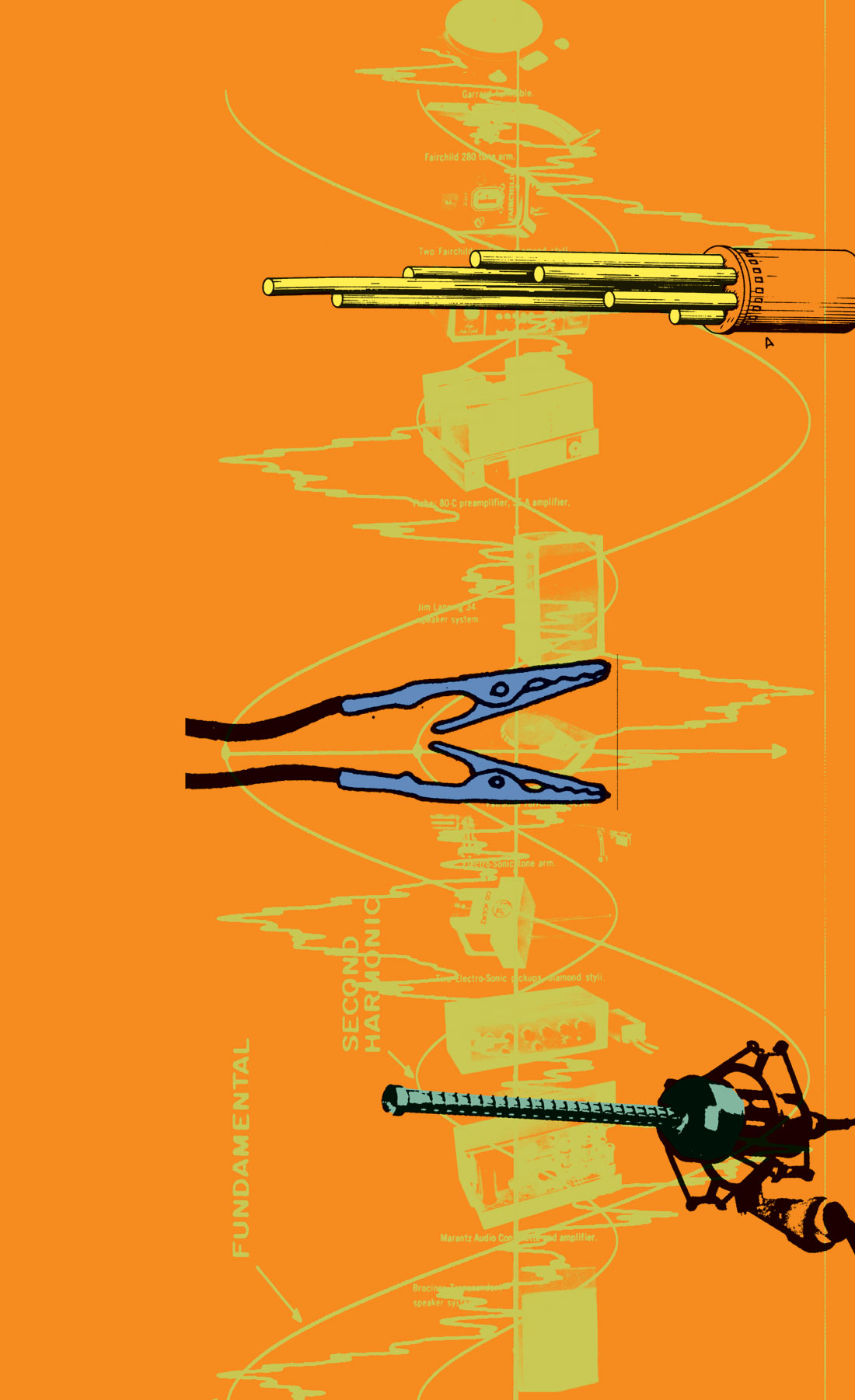



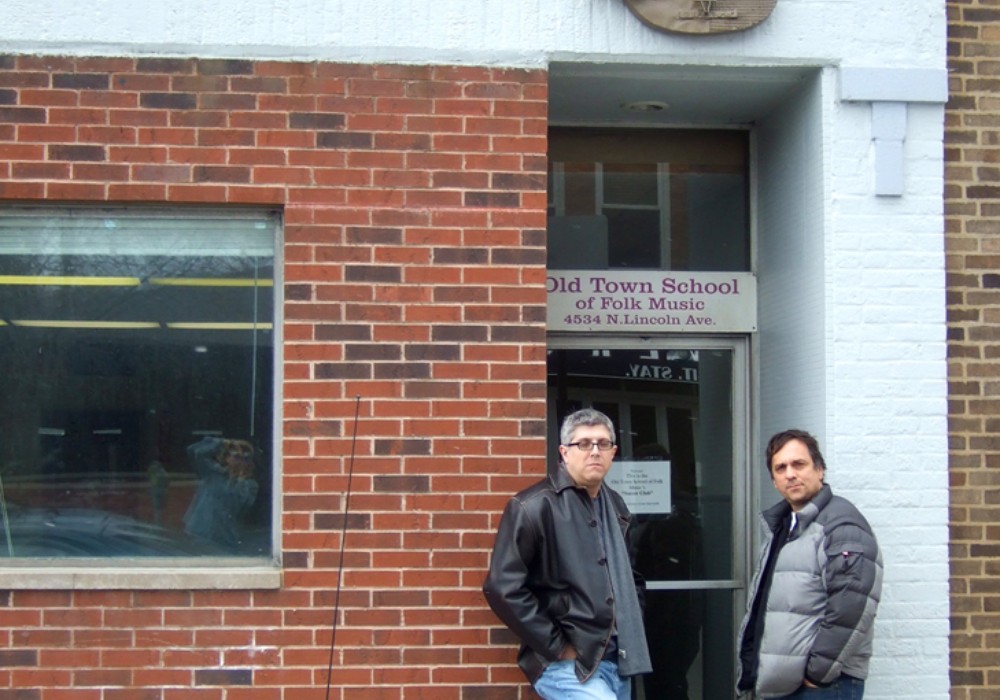
_display_horizontal.jpg)
